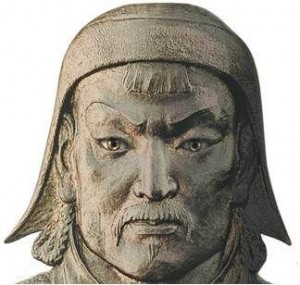I first met Lisa, a senior executive, when I was hired as a consultant to assist in designing and implementing a culture change programme for a large financial services company. Lisa was a member of the change management committee,  who were charged with implementing the culture change programme. I sat in on the change management committee meetings and I gradually noticed that almost all of the ideas the committee decided to use were Lisa’s. Yet Lisa’s behaviour was in no way pushy or dominating – in fact she appeared quite open and diplomatic.
who were charged with implementing the culture change programme. I sat in on the change management committee meetings and I gradually noticed that almost all of the ideas the committee decided to use were Lisa’s. Yet Lisa’s behaviour was in no way pushy or dominating – in fact she appeared quite open and diplomatic.
It gradually became clear that Lisa’s ideas “won out” largely because of her mastery of the persuasive arts. For example, Lisa seemed to have remarkable insight into other members of the committee – their moods, concerns, agendas, etc – and equally good insight into the internal dynamics within the committee (alliances, power relationships, etc). This allowed Lisa to present her ideas in ways that appealed to the interests of each individual committee member and also to use the committee’s internal dynamics to facilitate putting forth her case.

 For many years Mike had dreamt of becoming his law firm’s managing partner. He had finally won the role of the firm’s managing partner because of his success in bringing in huge amounts of revenue as a litigator. The difficulty was that he attempted to lead the firm using the same intellectual style he used in litigation. For example, Mike led weekly management meetings for the firm’s management committee and monthly meetings for the firm’s fifty partners. He dominated these meetings through the shear power of his intellect.
For many years Mike had dreamt of becoming his law firm’s managing partner. He had finally won the role of the firm’s managing partner because of his success in bringing in huge amounts of revenue as a litigator. The difficulty was that he attempted to lead the firm using the same intellectual style he used in litigation. For example, Mike led weekly management meetings for the firm’s management committee and monthly meetings for the firm’s fifty partners. He dominated these meetings through the shear power of his intellect. productivity of a large Defence Department division. Mark exuded power, confidence and authority and he had enormous energy and drive. He had a reputation for taking initiative and for getting difficult tasks done quickly and creatively!
productivity of a large Defence Department division. Mark exuded power, confidence and authority and he had enormous energy and drive. He had a reputation for taking initiative and for getting difficult tasks done quickly and creatively!